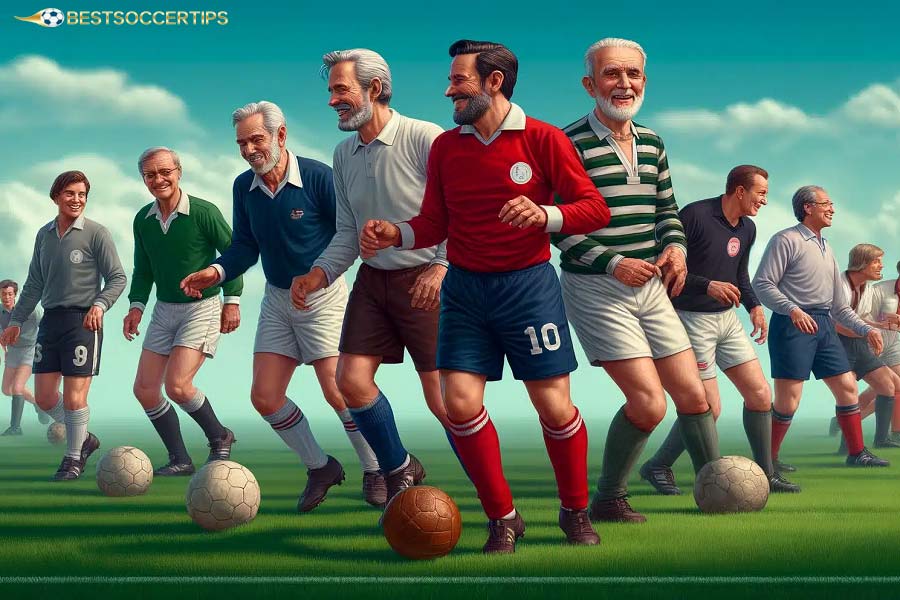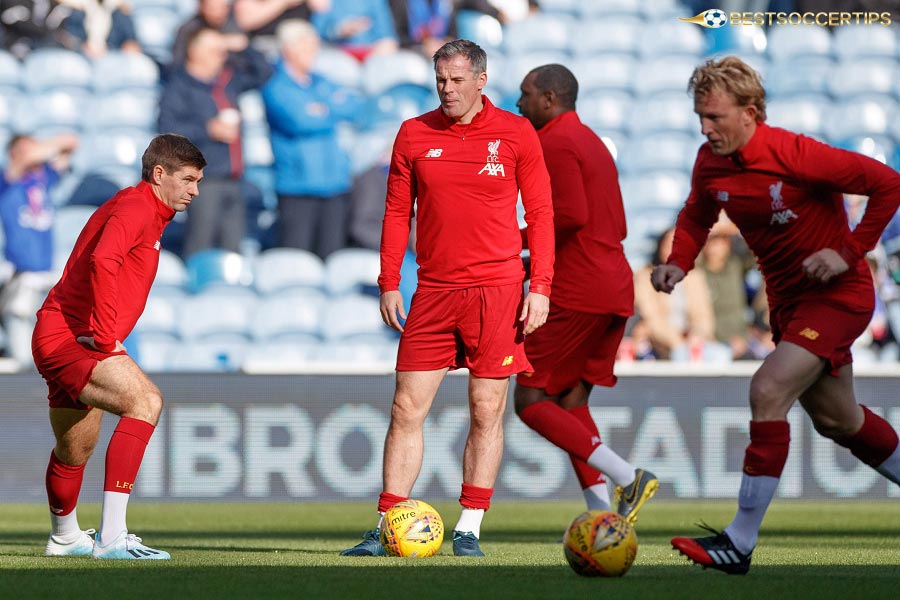At what age do soccer players retire? is a question that receives a lot of attention, especially when soccer is a sport that requires physical endurance and energy. The average retirement age of a soccer player is usually around 35 years old, but in reality there is no fixed age for retirement. This decision depends on many factors such as injury, age, personal motivation, and even financial satisfaction. With an average career of 8 to 10 years, players face challenges not only on the field but also in finding balance for the future after leaving the field. Today, with Bestsoccertips.com, let’s find out about at what age do most soccer players retire? through the article below!

At what age do soccer players retire?
At what age do professional soccer players retire? While there is no set age for professional soccer players to retire, the majority of them hang up their boots between the ages of 33 and 37, with 35 being considered the common average. However, this is not always the case, especially in the modern soccer landscape. Advances in sports science, from optimized training programs to scientific diets, have made it possible for players to extend their playing careers. These improvements not only help them stay healthier, but also significantly improve their recovery and performance on the pitch. This explains why more and more players are still playing at the top level well past the age of 35, something that was previously considered very rare.
Unlike many professions that have specific retirement age regulations, soccer – like other sports – does not impose an age limit. A player can continue playing as long as he maintains good physical condition and is able to cope with the challenges on the pitch. Age, in this case, is not the main barrier, but instead the physical and mental factors. This brings fairness to all players, because the opportunity to play is not limited by age but is determined by ability and dedication. However, retirement is still a personal decision. It is not only based on physical condition but also depends on the player’s satisfaction with his career. When they realize that they are no longer suitable or cannot meet the requirements of top football, they will choose the time to stop, ending their emotional journey on the pitch.
Reasons which football player retired recently?
Injury
The decision of when to retire from football can be taken out of a player’s hands if he suffers an unfortunate injury that forces him to retire. Sometimes this can be caused immediately by a bad tackle, a terrible accident or other health problems (Sergio Aguero), while other times it can be due to a gradual decline in the player’s physical attributes. An example of a famous footballer who retired due to injury is Marco van Basten, the former Dutch and AC Milan striker. Van Basten retired from professional football in 1995 at the age of 30 due to a chronic ankle injury that had plagued him for several years. Despite numerous surgeries and rehabilitation programmes, Van Basten was unable to overcome the injury and was forced to retire early.

Old Age
Of course, old age also causes players to decide to end their careers. But this varies from player to player. For the most part, goalkeepers last longer than outfield players because they don’t have to run around for 90 minutes like their outfield counterparts. Furthermore, defenders don’t have to be as physically fit as midfielders – who are usually the strongest players on the pitch. Midfielders need to move from one area to another, covering a lot of distance in a short amount of time. Attackers can get a little slower as they get older, as their experience ensures they can score even more goals (Cristiano Ronaldo). A good example of a player who retired due to old age is Arjen Robben. After signing for his boyhood club FC Groningen for the 2020–21 season, Robben played out the season and announced his retirement from professional football in April 2022, aged 37. Robben stated that he “no longer has the energy” to continue playing at the highest level and that it was time for him to move on to the next chapter of his life.
Personal reasons
Footballers may retire for a variety of personal reasons, such as a lack of motivation and passion, the need to spend more time with loved ones, financial satisfaction, and others. For example, Gerard Piqué retired from football at the age of 35 after a successful career with FC Barcelona and the Spanish national team. Piqué announced his retirement on social media, saying that he had “given everything” to the sport and was ready to start a new chapter in his life. Although Piqué did not give a specific reason for his retirement, it is believed that his decision was influenced by his desire to pursue interests other than football and his divorce from Shakira.
Find out details about the reputable and trustworthy bookmaker in the market.
Average retirement age for football players
As we mentioned above retirement age in football world cup is around 35, but this can vary depending on the playing position.

Goalkeeper
Most goalkeepers retire between the ages of 36 and 42. This is simply because the goalkeeper position is the least physically demanding on the pitch, which explains why ‘goalkeepers cope better with age than outfield players’. Although they are required to be physically fit and agile to make acrobatic saves, they do not need to sprint or run all over the pitch. This allows goalkeepers to extend their playing days as much as they want. For example, Juventus and Italy legend Gianluigi Buffon was still active well into his forties. In fact, most of the oldest footballers in the world are goalkeepers.
Defenders
Defenders tend to retire in their mid-to-late thirties. However, there is a difference between centre-backs and full-backs. The average retirement age for a centre-back is between 30 and 38, while a full-back typically retires between 30 and 36. AC Milan icon Paolo Maldini retired in the summer of 2009, just before his 41st birthday. Some full-backs move into midfield as they get older (Philipp Lahm and Dani Alves). Some footballers who could retire in 2023 are older midfielders.
Midfielders
For midfielders, they typically retire between 30 and 35, the youngest of any playing position. However, it is worth noting that there are different types of midfielders in football, and playmakers tend to age more than the enforcers or destroyers. Former AC Milan and Italy teammates Andrea Pirlo and Gennaro Gattuso are a good example. The two stars are close in age and played alongside each other for about a decade. But at 31, Gattuso’s body no longer allows him to chase the ball and strike fear into opponents as he was notorious for. Pirlo, on the other hand, has had memorable spells at Juventus and New York City FC.
Football striker
The retirement age for forwards is between 32 and 39, which is the oldest of the outfield players. Although wingers do a lot of running, they mostly change positions as they get older. Some wingers move into midfield (Lionel Messi and Ryan Giggs), while others become strikers (Cristiano Ronaldo). Some wingers may also retire completely, like Gareth Bale. The striker role requires more experience and intelligence than speed, so centre-forwards who retain their finishing ability well into old age may become even more suitable (Zlatan Ibrahimovic, Karim Benzema and Robert Lewandowski). A significant number of the best footballers over the age of 35 are strikers.
In Summary
Through this article, we have learned in detail about at what age do soccer players retire, as well as the important factors that influence their retirement decisions, from performance, physical condition to personal goals in life. Each player has his own journey, and the time of retirement often reflects both their dedication and the marks they leave in the hearts of fans. Hopefully, the above information has given you a deeper insight into the retirement age of soccer players and the values they have achieved in their careers.




